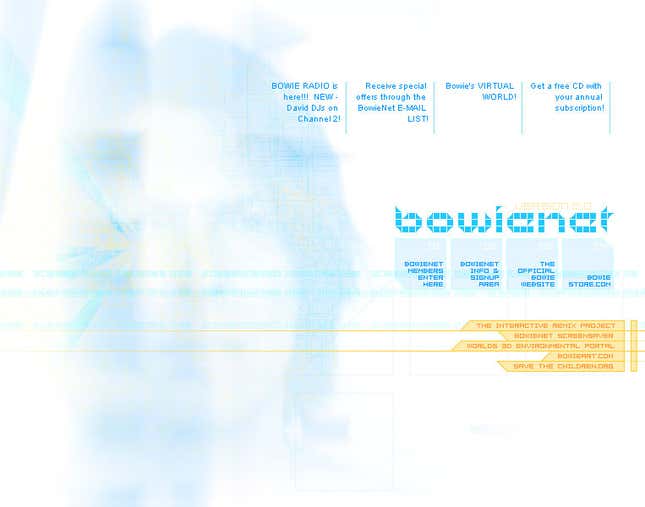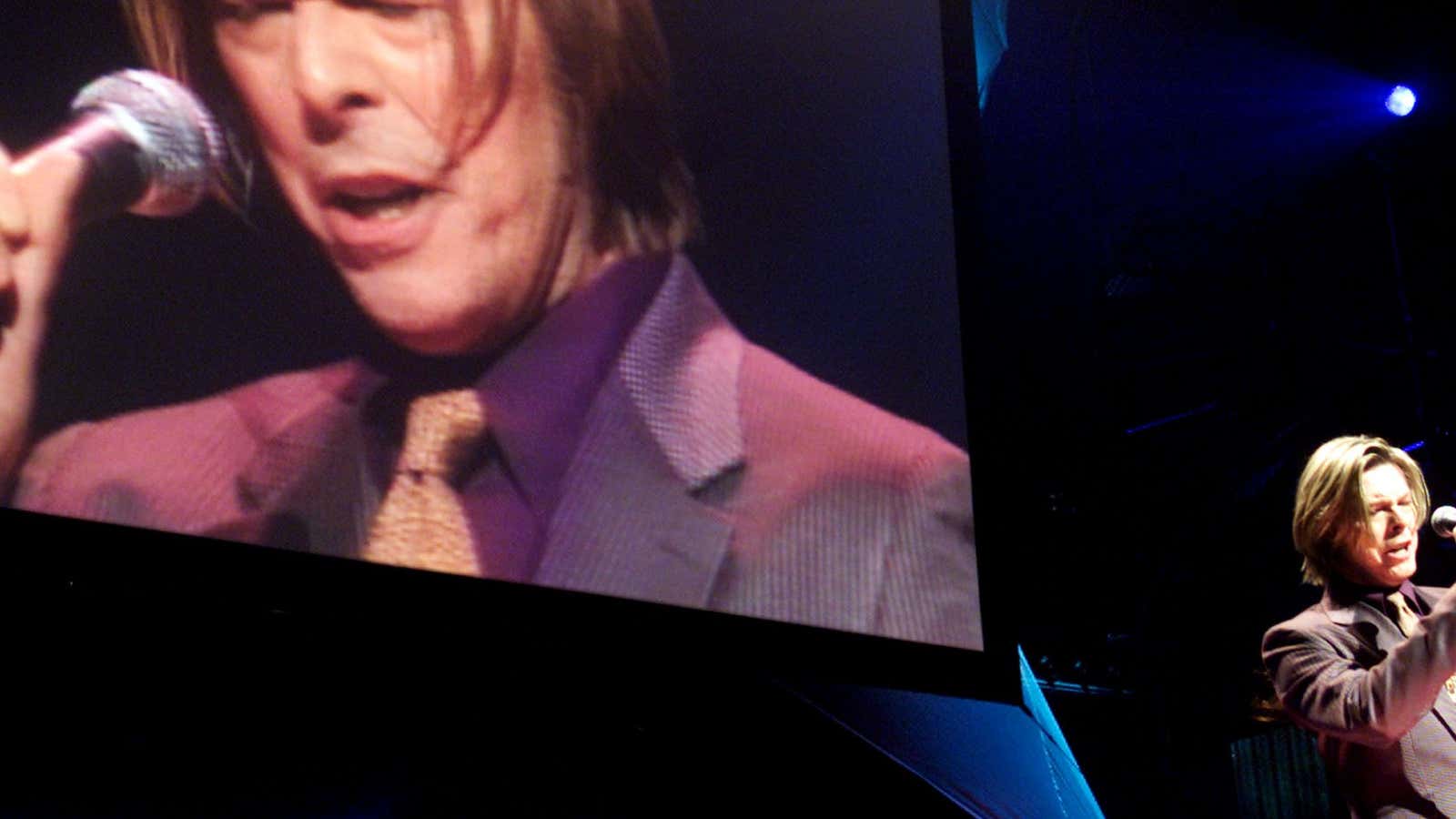David Bowie wasn’t just a ground-breaking musician, who used a lot of innovative technology in his work; he was also an internet entrepreneur with a startup worth hundreds of millions of dollars in the dotcom-boom days.
In September 1998, when less than half of all Americans had ever used the internet and AOL dominated the online landscape, Bowie launched an internet service provider (ISP) called BowieNet, which offered subscribers access for $19.95 a month—first in the US, then in the UK. Bowie made sure to throw in lots of goodies, including the then-standard 20 free megabytes to build a home page, an email address with a davidbowie.co.uk domain name for UK subscribers, and access to live chat sessions with Bowie himself and assorted musical collaborators.
BowieNet was operated by Bowie’s tech company UltraStar, which had a plan to bring celebrities online by creating their own ISPs and portals filled with customized online content. These would be on-ramps to the “Information Superhighway” for the celebrities’ fans, and UltraStar would make sure there would be plenty of billboards dedicated to the celebs as fans sped by.
UltraStar was in the thick of the late-1990s dotcom bubble, carrying a peak valuation of over £500 million ($818 million at the time, which would be worth $1.2 billion today). It boasted 5.2 million hits in the first two weeks of operation and raised funding from concert promoter SFX Entertainment in December 1999.

The deal saw SFX—an earlier, NYSE-listed incarnation of today’s Nasdaq-listed firm of the same name—acquire a “substantial minority interest” in UltraStar, although details of the investment size are scant. By the time the deal was announced UltraStar had already set up ISPs and portals for the New York Yankees (the YankeesXtreme portal) and the Baltimore Orioles (OriolesWorld).
BowieNet was officially shuttered in March 2012 (“Whatever the truth, the old BowieNet, as we have known it, is kaput!” a Facebook announcement said), but not before a string of technological experiments, including: an internet radio station with Bowie as DJ; encrypted music and video files designed to prevent piracy; concert live-streams; “BowieWorld,” where users could interact using 3-D avatars; and a “cyber song” contest that crowdsourced lyrics to a half-finished song Bowie had written.
BowieNet and its experiments meshed with the music legend’s sense of the massive technological change to come—a music landscape transformed by Napster, Apple’s iTunes Store, the rise of music streaming services, and bands releasing their tracks exclusively online. Speaking to the New York Times (paywall) in 2002, he said:
“The absolute transformation of everything that we ever thought about music will take place within 10 years, and nothing is going to be able to stop it … I’m fully confident that copyright, for instance, will no longer exist in 10 years, and authorship and intellectual property is in for such a bashing … Music itself is going to become like running water or electricity.”
